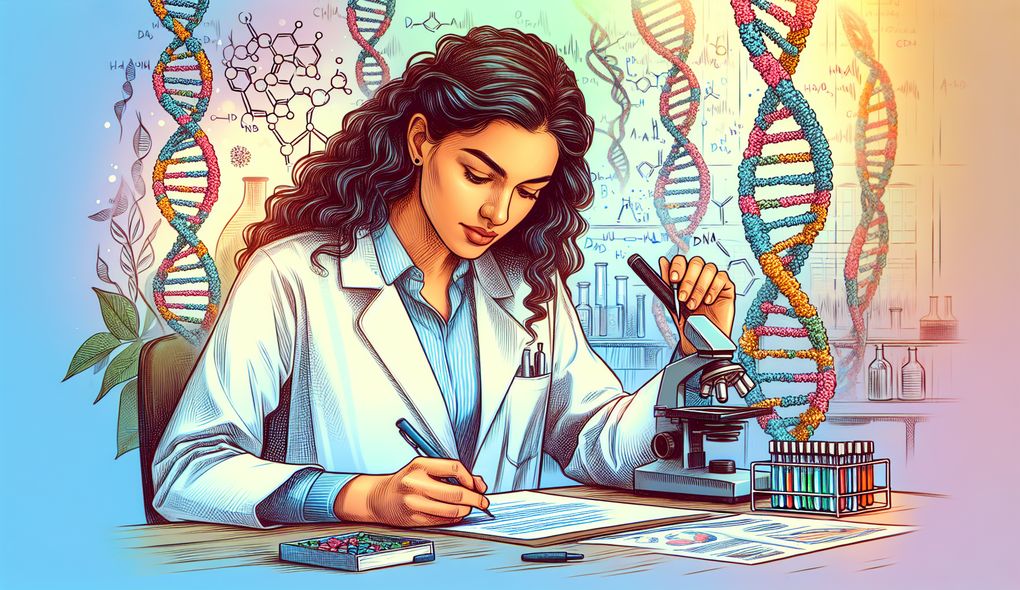How do you collaborate with other healthcare professionals to ensure comprehensive patient care?
SENIOR LEVEL

Sample answer to the question:
In my previous role as a Clinical Geneticist, I collaborated with other healthcare professionals by actively participating in multidisciplinary team meetings. During these meetings, we discussed patient cases, shared information, and worked together to develop comprehensive care plans. I also maintained open lines of communication with other specialists, such as genetic counselors, radiologists, and pathologists, to ensure a holistic approach to patient care. Additionally, I regularly attended conferences and workshops to stay updated on the latest advancements in genetics and genomics, which allowed me to bring new knowledge and insights to the team.
Here is a more solid answer:
Collaborating with other healthcare professionals is crucial to ensuring comprehensive patient care. In my role as a Clinical Geneticist, I actively engaged in multidisciplinary team meetings, where we collectively reviewed patient cases, discussed treatment options, and shared knowledge from our respective specialties. I made it a point to maintain open and transparent communication with other healthcare professionals, such as genetic counselors, radiologists, and pathologists. This collaboration allowed us to pool our expertise and develop well-rounded care plans that addressed the unique needs of each patient. Furthermore, I actively sought opportunities for professional development by attending conferences, workshops, and seminars related to genetics and genomics. These events provided valuable insights into emerging research, new diagnostic techniques, and innovative treatment approaches, which I could then bring back to my team. By staying updated on the latest advancements in the field, I was able to contribute to evidence-based decision-making and ensure that our patients received the most current and effective care.
Why is this a more solid answer?
The solid answer elaborates on the candidate's collaboration with healthcare professionals, emphasizing the importance of multidisciplinary team meetings and transparent communication. It also highlights the candidate's proactive approach to professional development and staying updated on the latest advancements in genetics and genomics.
An example of a exceptional answer:
Collaboration with other healthcare professionals is at the core of delivering comprehensive patient care in the field of genetics. As a Clinical Geneticist, I fostered a collaborative environment by actively engaging in multidisciplinary team meetings and promoting open communication. During these meetings, I actively contributed my expertise in genetics and genomics, while also valuing the input and perspectives of other healthcare professionals involved in the patient's care. By working together, we developed personalized care plans that integrated medical, psychological, and social aspects of the patient's health. Additionally, I recognized the importance of building strong relationships with genetic counselors, radiologists, and pathologists. I actively sought their input and collaborated closely with them to ensure accurate interpretation of genetic testing results and to provide comprehensive genetic counseling to patients and their families. Furthermore, in order to deliver the highest quality care, I continuously pursued professional development opportunities. I attended national and international conferences, where I presented my research findings and learned about cutting-edge advancements in the field. This allowed me to bring back new knowledge and innovative approaches to my team, ultimately enhancing the quality of care we provided to our patients.
Why is this an exceptional answer?
The exceptional answer goes above and beyond in describing the candidate's collaboration with healthcare professionals. It emphasizes the importance of integrating diverse perspectives and expertise in developing personalized care plans. It also highlights the candidate's strong relationship-building skills with genetic counselors, radiologists, and pathologists, as well as their commitment to continuous professional development through conference attendance.
How to prepare for this question:
- Familiarize yourself with the roles and responsibilities of different healthcare professionals involved in genetic care, such as genetic counselors, radiologists, and pathologists. Understand how their expertise complements yours.
- Reflect on your past experiences collaborating with healthcare professionals and think of specific examples where you actively engaged in multidisciplinary teamwork.
- Research the latest advancements in genetics and genomics, and be prepared to discuss how you stay updated on new developments in the field.
- Consider how you can effectively communicate complex genetic information to non-genetic healthcare professionals and patients, as this is a key aspect of collaboration.
- Prepare examples of successful collaborations and discuss the positive outcomes that resulted from your teamwork.
What are interviewers evaluating with this question?
- Collaboration with healthcare professionals

